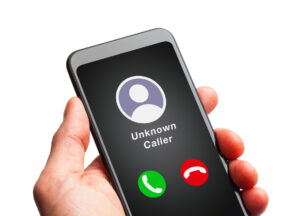May 12, 2022 | Nursing Home Protection
New Ohio Law Enables Electronic Monitoring in Nursing Homes

Even when you feel confident in the staff and capabilities of the nursing home you chose, it’s hard not to worry about the well-being of your loved one when you’re not there. That’s why it’s important for everyone with a family member in long-term care to know about a new law that took effect on March 23 of this year. It’s called Esther’s Law, and it permits nursing home residents and their representatives to authorize and install electronic monitoring devices in their rooms to keep an eye on their care.
The law is named for Esther Piskor, who was tragically abused and neglected by nursing home staff in the final few years of her life. Her son, Steve, visited her often, yet staff never mentioned anything out of the ordinary about Esther’s care. He caught the abuse after placing a hidden camera in Esther’s room. Following Esther’s passing, he worked with lawmakers to create and pass the bill in his mother’s honor and empower other families to take similar measures to protect their loved ones.
Because electronic monitoring impacts other parties—including nursing home staff and fellow residents, particularly those in a shared room—the decision to monitor has some caveats, which the law addresses. For example, the roommate of a resident who wishes to install electronic monitoring must consent to the monitoring before it can be installed. If a roommate cannot consent for themselves, consent may come from their representative. Roommates (or their representatives) also have the right to request conditions to protect their privacy. Those conditions must be honored, and the roommate can revoke their consent at any time. If a roommate does not want the electronic monitoring installed, the nursing home must move the resident requesting electronic monitoring to another room with the resident’s consent.
As far as the facility is concerned, Esther’s Law allows for notification to be posted outside the resident’s room to inform those who enter that electronic monitoring is being conducted. A resident who uses electronic monitoring may not be retaliated against, nor may their decision be used against them in admissions or discharge. Further, facilities are prohibited from destroying, obstructing, or tampering with the monitoring system or its recordings.
For many families, this law represents an opportunity to gain insight into the treatment of their loved ones and peace of mind. After working with Ohio families for years on nursing home protection and elder care, it’s a subject that’s close to our heart.
If you’d like more information on Esther’s Law, contact the Ohio Department of Aging’s Long-Term Care Ombudsman Program at 1-800-282-1206 or OhioOmbudsman@age.ohio.gov.


